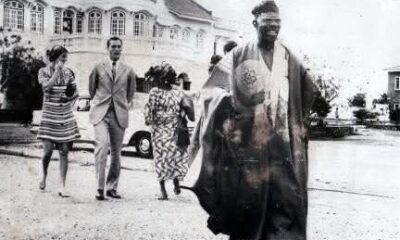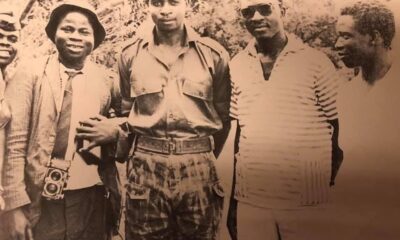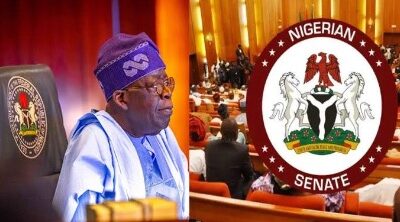Trending
Are the Lebanese people caught in the crossfire of a war they didn’t ask for?
The prospects of an Israeli ground incursion in Lebanon have reached their peak, and even a temporary ceasefire seems a distant echo after Israel rejected the deal and Hezbollah remains reluctant to turn away its missile launchpads.
While the number of civilian casualties is surging, Lebanon’s public services are teetering on collapse, especially after years of financial and economic crises that have put the country’s finances on its knees.
Thousands of people are leaving their villages in the south and the Bekaa Valley to find shelter in the provinces of Beirut, the Lebanese mountains, and the north.
Right now, the general sentiment in Lebanon is that one can only hope for an 11th-hour miracle.
“Lebanese people want peace,” Health Minister Firass Abiad told Euronews. “The position of the Lebanese government, and the position of the Lebanese people as well, is that Lebanon does not want war.”
“And from day one, we believe that the best way out of this situation is to have a diplomatic solution, starting with a cease fire in Gaza and the immediate release of the (Israeli) hostages.”
“It is clear that violence is not going to bring us closer to a solution, yet unfortunately, it will make the situation worse,” Abiad pointed out.

A resident checks an apartment that was hit by an Israeli airstrike in Beirut’s southern suburbs, 25 September 2024 AP Photo/Hassan Ammar
Regional and international observers are increasingly persuaded that the ceasefire will not be possible without a powerful political deal. Yet, the prospects of stopping the war seem to go well beyond the borders and the will of the sectarian-based Lebanese institutions.
Unless Israel strikes a deal with Hamas, that is.
According to observers, a humanitarian-led ceasefire in Gaza could help lower the heat threatening to inflame the entire Middle East and whose domino effect could push Lebanon to a new civil war, further complicated due to militias of different types and non-state actors like Hezbollah.
“After the loss of lives of innocent civilians and tens of thousands of women and children in Gaza, now we have a similar situation unfolding in Lebanon,” Abiad said. “Hezbollah has stated clearly that if things stop in Gaza, they will stop all their action.”
“Therefore, everybody understands that a ceasefire in Gaza will be the instrument to remove the excuse of all non-state actors, whether in Lebanon, whether in Iraq, whether in Yemen or any other places (to stop fighting),” he explained.
Captives of ballistic diplomacy
The Middle Eastern non-state actors have become the de-facto pieces of the ballistic diplomacy of Tehran in its proxy war against Israel and the desire of Iran to stress-test the Iron Dome, the Israeli anti-missile defence system.
This might complicate things further, experts say.
“It’s very unlikely that Hezbollah will be pushed to reduce its launching of rockets into Israel. It’s more likely that we are going to see further escalation on this side,“ said Luigi Narbonne, on-leave EU ambassador to Saudi Arabia and other MENA countries and head of Mediterranean Studies at the LUISS University in Rome.
“It’s well known that Hezbollah has much larger capacities in terms of rockets and precision-guided missiles that may strike Israel and cause major damage and casualties amongst the (Israeli) population,” Narbone explained to Euronews.

Hezbollah members raise their group flags and chant slogans in Beirut, 25 September 2024 Hassan Ammar/Copyright 2024 The AP. All rights reserved
Meanwhile, Lebanese authorities are forced by the circumstances to find unsteady solutions to highly sensitive matters at home.
Since the end of the civil war in 1990 and the signing of the National Reconciliation Accords, aka the Taif Agreement, the Lebanese Council of Ministers has been a delicate composition of different parties involving the country’s main religious groups — Catholics and Orthodox Christians, Sunni and Shia Muslims, the Druze and other minorities — who fought against each other not so long ago.
Now, the country is preparing for the possibility of having to fight side-by-side against Israel’s boots on the ground — an issue that has raised a number of questions both at home and abroad.
“Will the Lebanese army defend its country? I think that it is the least that one can expect from a national army when that army’s country is being invaded. It is its duty, to defend its community, its citizens,” Abiad said.
Caught in the middle of it yet again
In 2006, when the Tsahal invaded Lebanon, the Lebanese regular army did not fight against the Israeli units because they did not receive any orders from Beirut. For the Lebanese government, it was all just a showdown between the IDF and Hezbollah’s militants.
“We know that there is a part of Lebanon that clearly does not like Hezbollah. However, the reaction of the Lebanese people will very much depend on the level of damages and the casualties that Israel will provoke with its military actions,” said Nardone.

Lebanese soldiers gather outside a damaged mobile shop after what is believed to be the result of a walkie-talkie exploding inside it, in the southern port city of Sidon, Leba AP Photo
After 2006’s Two Months War, the UN Resolution 1701 established that the Lebanese army had the role to defend the national borders and the obligation to disarm Hezbollah. Yet, since then, the Shia militia has only increased in size and firepower.
But as much as the current conflict is yet another Israel-Hezbollah bust-up, Lebanon is the one on the receiving end of it all.
“The 1701 resolution has also had infringements from Israel, who continues to occupy parts of Lebanon, and their warplanes continue to intrude into the airspace of Lebanon, and they continue to attack Lebanon,” the Lebanese minister of health said.
“The problem a lot of the times with Israel is that it only thinks that laws are made for the other countries.”
Wars, financial crisis and high-tech dystopia
Despite the relative lack of popularity of Hezbollah in Lebanon, in the end, the humanitarian crisis could bring the country together.
“Lebanon is already passing through multiple crises. We are in a deep financial crisis. We are hosting a large number of refugees, almost 1.5 million. One-third of our population. So, this war that has been ongoing for almost one year has really put a lot of stress on our system,” Abiad said.
The Lebanese population is strained and exhausted, which could bring unexpected outcomes.

People react during the funeral procession of their relatives, who were killed in Monday’s Israeli airstrikes, in the southern village of Saksakieh, 24 September 2024 AP Photo/Mohammed Zaatari
“We have been witnessing mass displacement of people from the south. And obviously, the number of casualties, including civilians and children, will have an impact on the Lebanese people, which may also react as a nation and overcome the traditional divisions,” said Nardone.
Those living in Lebanon are still traumatised by last week’s dystopian exploding pager and walkie-talkie attacks, Abiad explained.
“It was a very big shock to the health system. Ever since the war started, we have been preparing our health care system, our hospitals, for the possibility of mass casualties.”
“But that attack was unprecedented because the weaponisation of the communication devices caused a large number of casualties. We are talking about 3,000 casualties in a matter of minutes,” he said.
Will regional actors step in to prevent a disaster?
Finally, the Lebanese question might find its solution through the involvement of other major actors in the region. Are the political conditions there?
“We have respected and accepted the call of the US, the G7 and the rest of the leading countries like Qatar, Saudi Arabia, Egypt, UAE and others. We have complied with all of this, with the consensus among all the stakeholders of the region,” Abias said.
Saudi Arabia has a major role in Lebanon, especially after the Abraham Accords and the downfall of Syria and its leader, Bashar al-Assad.
“It’s no secret that the Saudi (government) views Hezbollah as a force that would need to be dismantled or at least reduced in power,” Nardone said.
“In the past, they tried politically to use their influence within the Lebanese political arena to get these results. And so far, unsuccessfully. And, of course, at the moment they would rather not take actions that may entail a risk of being drawn into the conflict,” he concluded.
Trending
Actress Doris Ogala reacts to Pastor Chris Okafor’s wedding, makes fresh explosive claims

Actress Doris Ogala has reacted strongly to Pastor Chris Okafor’s wedding, insisting that the public does not know what is really going on behind the scenes.
In a new outburst following reports of the wedding, Doris alleged that the marriage was forced, claiming the bride was r*ped and got pregnant and that the situation was allegedly used to prevent public exposure. According to her, the bride’s mother is his church’s choir coordinator and allegedly insisted on marriage to avoid scandal.
Doris further claimed that Pastor Chris had another woman he was allegedly set to marry on the 24th, adding that she has chats and videos she says support her claims. She described the situation as darker than it appears and said her decision to speak out was deliberate, despite the personal cost.
She maintained that her earlier confessions and allegations were part of what she described as a spiritual and personal reckoning, stating that she felt compelled to expose what she believes has been hidden.
https://www.instagram.com/reel/DSXz6ZLDMRY/?igsh=YjJyaHJ4bWNxdHg1
Trending
Kwara Govt Confirms Arrested Armed Men Are Miyetti Allah Members, Not Bandits

The Kwara State Government has provided clarification on the viral video showing armed men, initially believed to be bandits, being interrogated by soldiers, a development that had sparked widespread public anger and calls for a state of emergency.
The state official confirmed that the men apprehended were part of a security operation coordinated by the Federal Government, raising fresh controversy over the use of armed non-state actors in counter-insurgency efforts.
Speaking on Informant247, Ibrahim Abdulateef, Senior Special Assistant on Communication to the Governor, confirmed the arrested individuals were members of Miyetti Allah who were incorporated into a Joint Task Force following the deadly September 29 attacks in Ifelodun LGA.
“Under their security setup, they use both recognized officers and a JTF which includes members of Miyetti Allah and local vigilante networks,” Abdulateef said.
The controversy deepened as the state confirmed that a patrol vehicle was provided through the local government chairman “in a bid to empower security forces.”
The government denied the men were arrested as bandits in Kwara. Instead, Abdulateef alleged that after the men completed their assignment, they “absconded with the patrol van” and were subsequently arrested by soldiers “in Auchi, Edo State, not anywhere in Kwara.”
According to Sahara Reporters, the Chief Press Secretary to the Governor, Rafiu Ajakaye, further clarified the identity of an official named in the suspects’ confession: “Victor is a police sergeant attached to the NSA Office,” and not a DSS or Air Force officer as speculated.
Ajakaye disclosed that Victor and the vigilante operatives had since left Kwara State in line with the position of affected local communities, a decision the government said it respected.
He cautioned against sensational reporting of sensitive security matters, describing the situation as a “secrecy dilemma” that requires balance to ensure accountability without undermining national security efforts.
“We are going through a difficult phase in national security emergency. The pain of losing our brothers and sisters and of losing our peace of mind cannot be quantified. Losing a soul is a tragedy — much less many souls,” he said in a WhatsApp post.
He called for calm, urging political elites and community leaders to act with tact and responsibility amid rising tensions.
“But statesmen and patriots aren’t known in time of peace and ease. The elite (who shoulder the burden of guiding the masses) need to handle these whole things with a lot of tact and patriotism,” he said.
“May God guide us, restore peace in our land, expose the evil doers and their collaborators, and make our country stronger, more peaceful, and more prosperous,” the CPS added. “This is a time for careful leadership, not reckless accusations.”
The state’s confirmation of the use of Miyetti Allah members in armed operations comes after previous reports highlighted strong opposition from Kwara residents and local Fulani leaders to an alleged plan by the National Security Adviser (NSA), Nuhu Ribadu, to deploy and arm Fulani herders (Bororos) with AK-47 rifles to fight banditry.
Local Fulani stakeholders had warned that arming non-state actors could worsen insecurity, citing the failure of similar previous attempts and the volatility of migrant herders.
Both the Kwara State Government and Miyetti Allah initially denied any arrangement involving the arming of herders or collaboration with bandits.
Trending
4 Rushed To Hospital as Aircraft Crash-Lands at Imo Airport
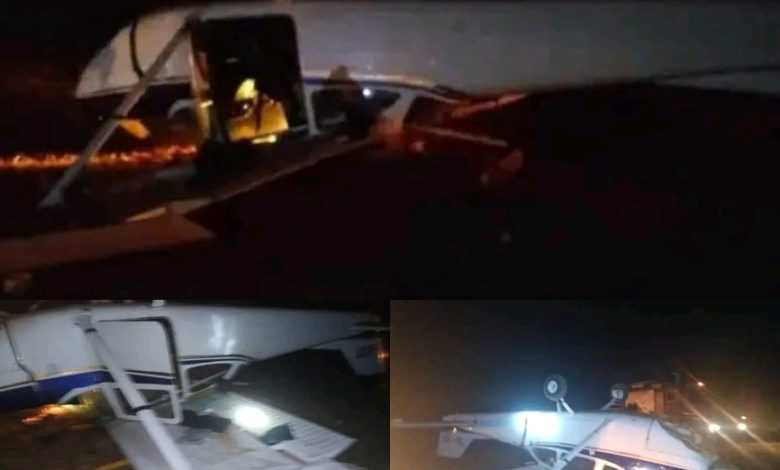
By Dan Opara
A light aircraft, Cessna 172, operated by Skypower Express, crash landed on Tuesday night, December 16, 2025, at the Sam Mbakwe International Cargo Airport, Owerri, Imo State, resulting in the hospitalization of four persons.
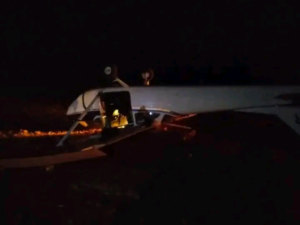
Eyewitnesses said the aircraft encountered difficulties during landing, lost stability on the runway, and subsequently somersaulted before coming to a halt within the airport premises.
The incident triggered panic among airport personnel and onlookers, although no lives were lost.
Emergency response teams were swiftly deployed to the scene, where the injured occupants were rescued and immediately transported to a nearby medical facility for urgent treatment.
Airport officials confirmed that the four victims are currently receiving medical care, and their condition was described as stable as of the time of filing this report.
The Nigerian Safety Investigation Bureau, NSIB, has commenced a formal investigation into the incident to ascertain both the immediate and underlying causes of the crash landing.
The investigation is expected to focus on the aircraft’s technical condition, prevailing weather conditions, pilot actions, and other operational factors surrounding the occurrence.
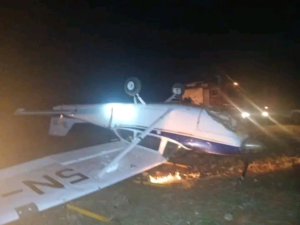
Following the accident, airport operations were temporarily disrupted, but normal activities were later restored after safety officials secured the affected area.
Authorities at the airport assured the public that all necessary safety measures are being strengthened to prevent a recurrence.
Meanwhile, stakeholders within the aviation sector have expressed concern over the incident and called for a comprehensive and transparent investigation to further enhance aviation safety standards in the country.
Ekwutosblog gathered the report through monitored information circulating on social media, as prayers and goodwill messages continue to pour in for the quick recovery of those hospitalized, while the public awaits the outcome of the NSIB investigation.
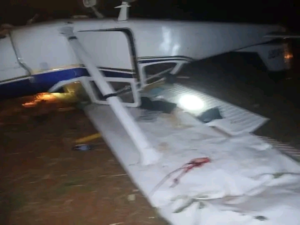
-
Business1 year ago
US court acquits Air Peace boss, slams Mayfield $4000 fine
-

 Trending1 year ago
Trending1 year agoNYA demands release of ‘abducted’ Imo chairman, preaches good governance
-

 Politics1 year ago
Politics1 year agoMexico’s new president causes concern just weeks before the US elections
-

 Politics1 year ago
Politics1 year agoPutin invites 20 world leaders
-

 Politics1 year ago
Politics1 year agoRussia bans imports of agro-products from Kazakhstan after refusal to join BRICS
-
Entertainment1 year ago
Bobrisky falls ill in police custody, rushed to hospital
-
Entertainment1 year ago
Bobrisky transferred from Immigration to FCID, spends night behind bars
-
Education1 year ago
GOVERNOR FUBARA APPOINTS COUNCIL MEMBERS FOR KEN SARO-WIWA POLYTECHNIC BORI

